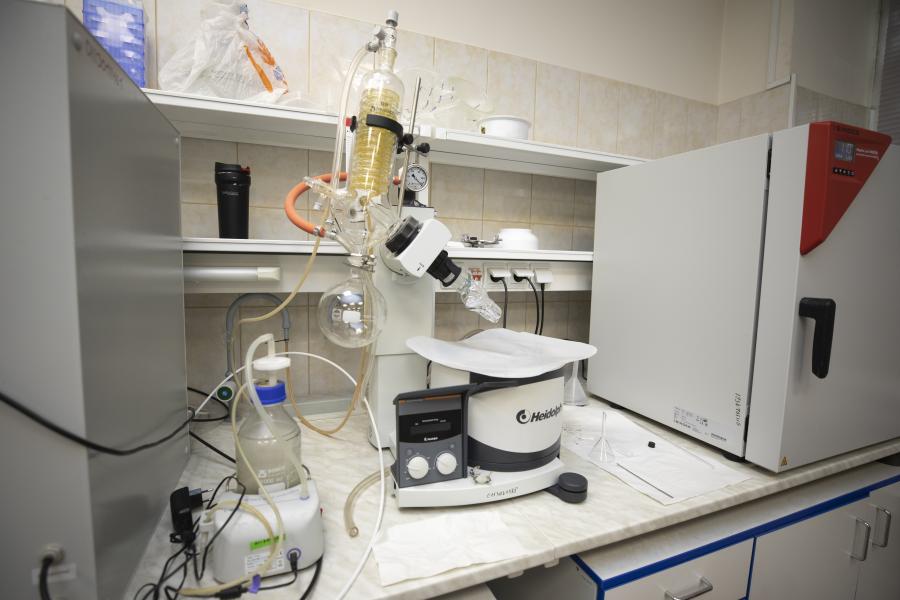Employees of the Nano-Photon Scientific Center of the Engineering Physics Institute of Biomedicine at MEPhI have created a prototype of the so-called polariton photoreactor, an installation that allows approximately 10 times to increase the efficiency of chemical reactions in a substance placed in the device. The principles laid down in the prototype can be used for more productive production of biologically active compounds.

The reactor operation is based on the principles of polariton chemistry, which studies the effects of a strong bond between light and matter. However, in order for light to significantly affect the speed and efficiency of chemical reactions, it must be "compressed". The basis of the photoreactor created at MEPhI is the Fabry-Perot interferometer, an optical resonator consisting of two parallel thin mirrors, but the distance between the two mirrors in the reactor is measured in only tens of nanometers.
Microscopic fractions of substances are placed in the cavity of the resonator, the molecules of which are excited by laser radiation. Due to the fact that the light in the resonator is strongly compressed and "runs" between the mirrors with almost no loss of energy, the substance molecule does not have time to completely dissipate the excitation energy and come to a state of equilibrium. The molecule remains in an excited state, as a result, instead of one vibrational level, two with higher and lower energy are obtained in the molecule of the irradiated substance. Since the vibrational levels of molecules are directly involved in the course of chemical reactions, due to the splitting of the vibrational level and the use of a higher energy level, it is possible to increase the efficiency of chemical interaction. As a result, the output is about 10 times more of the required chemical compound than if the chemical reaction took place without using a photoreactor.
An important feature of the created device is that it not only increases the number of chemical compounds obtained, but also allows the synthesis of substances with a certain enantioselectivity, that is, to achieve the effect when, during a chemical reaction, one type of two possible mirror-symmetrical molecules, an enantiomer, is synthesized in much larger quantities than the other. This effect can be of great importance for pharmaceuticals, because such enantiomer molecules are often more chemically effective than molecules that are identical in chemical composition, but have slightly different properties due to the mirror symmetry of the shape. It is usually very difficult to separate entiomers symmetrical to each other in chemical reactions, but the polariton photoreactor created at MEPhI makes it possible to selectively synthesize chemical compounds that are enantioselective in the desired direction.
The new device may have important applications for the pharmaceutical and chemical industries, however, it must be borne in mind that the effects used in the photoreactor are manifested only when working with microscopic doses of substances (on the order of micrograms), and to use these effects on an industrial scale, it will be necessary to create real "batteries" from a variety of photoreactors.
During the development of the photoreactor, MEPhI scientists registered 3 patents.
The development of the photoreactor is funded by a grant from the Russian Science Foundation within the framework of the program "Conducting research by world-class scientific laboratories within the framework of the priorities of scientific and technological development of the Russian Federation" of the Presidential Program of research projects implemented by leading scientists, including young scientists.
After completion of the grant, work on the reactor is planned to continue within the Laboratory of Optical Quantum Sensors in the new scientific center LIFT ("Life Improvement by Future Technologies" ) located on the territory of Skolkovo.. 999





